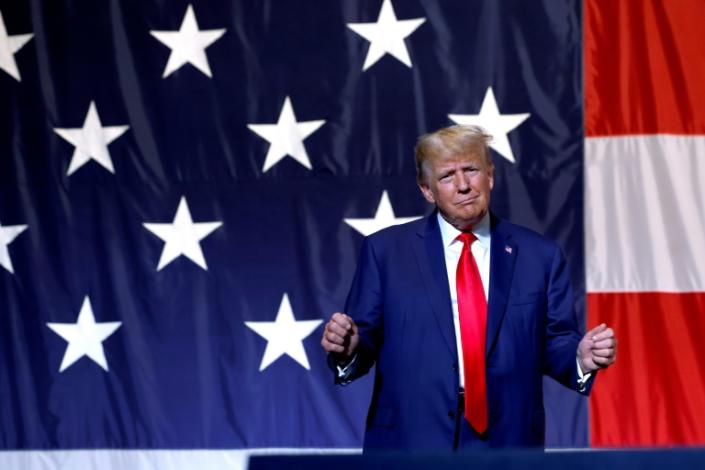
The indictment of former US president Donald Trump is full of evidence of an apparent crime, but it lacks one thing -- a motive.
Trump was charged with removing top secret documents from the White House and refusing to hand them back.
He could have avoided charges -- which bring up to 20 years in prison -- if he had allowed National Archives officials to retrieve all the official government records last year.
Pressed by the Archives, in January 2022 Trump handed over 15 boxes of documents from his Florida residence Mar-a-Lago, including favorite keepsakes like his personal letters from North Korea's Kim Jong Un.
Those boxes, it turned out, contained 197 classified defense and intelligence documents, sparking an FBI subpoena to get any other secret files that Trump may have taken to Mar-A-Lago.
Trump's attorney found 38 more classified documents from a search of 30 boxes kept in a storeroom, and turned them over to the FBI on June 3, 2022, saying that was all.
In fact, another 34 boxes remained hidden. On August 8 the FBI raided Mar-a-Lago and found another 102 classified files, including 27 in Trump's office.
The indictment only charged Trump over documents he kept after the first 15 boxes were handed over, underscoring the Justice Department's view that he could have avoided prosecution.
- Intelligence as currency? -
Why he did not is unclear.
"This entire thing came about because of reckless conduct of the president," Trump's former attorney general Bill Barr told Fox News.
"Every other person in the country" would have turned over the files, he said.
Michael Cohen, Trump's former personal attorney, argued that Trump saw the documents as political and commercial currency.
"There's no doubt in my mind that he believes that this can provide him with some form of a benefit," Cohen said told MSNBC.
Cohen said the documents could help Trump do business with Iran arch-rival Saudi Arabia, pointing to Trump son-in-law Jared Kushner's $2 billion fund management deal with the Saudis.
Trump himself believed the documents should be his personal property as former president, the indictment shows.
"I don't want anybody looking through my boxes, I really don't," he told his attorney in May 2022, after the FBI subpoena was issued.
His penchant for mementos could also explain his actions.
The classified documents were recovered from boxes that contained photographs, news clippings, clothing, and even golf balls, testament to the idea they were all tossed together in the hectic final days of his White House tenure in January 2021.
There were also empty folders marked "classified," which Trump called "cool keepsakes."
- 'Like, highly confidential' -
There's no evidence that Trump even knew the extent of what he had in the boxes.
But he clearly regarded access to the country's secrets as a source of power and prestige.
While in the White House he delighted in impressing others with intelligence, brandishing it to visiting officials and putting it out on his Twitter feed.
After he left the White House, the indictment depicts him showing visitors to his New Jersey home a top secret Pentagon plan of war -- reportedly against Iran.
Trump told them it backed his position against longtime antagonist, Joint Chiefs Chairman General Mark Milley.
"This totally wins my case," Trump told them. "Except it is like, highly confidential," he said.
At another time, he showed a political consultant a map of an unnamed country, telling the consultant to maintain his distance, because the document was highly classified.
pmh/bgs
"do it" - Google News
June 13, 2023 at 03:10AM
https://ift.tt/iIOvP18
Trump indictment's missing link: why did he do it? - Yahoo News
"do it" - Google News
https://ift.tt/2COdgka
https://ift.tt/X6PYMIw
Bagikan Berita Ini














0 Response to "Trump indictment's missing link: why did he do it? - Yahoo News"
Post a Comment